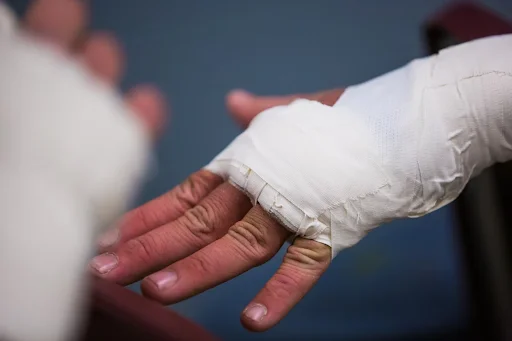Personal injury claims can be overwhelming, often leaving individuals confused about the legal process and their rights. Navigating through the complexities of such claims is important to achieving fair compensation for injuries sustained.
Knowing what actions to take, as well as what to avoid, can significantly influence the outcome of a claim. This article outlines key dos and don’ts to help you manage your personal injury claim effectively.
Do Get Local Legal Assistance
Finding the right legal support is crucial when dealing with personal injury claims. Local attorneys possess a comprehensive understanding of laws and regulations that apply in their jurisdiction. This expertise ensures that individuals receive pertinent advice tailored to their unique situations. Whether you need a Shreveport attorney, a Lafayette one, or someone more local, their knowledge can prove invaluable in navigating the complexities of your case. A proficient personal injury attorney can properly assess the merits of your claim and estimate its potential value.
This assessment allows you to set realistic expectations and engage more confidently in negotiations with insurance companies. They can help gather and prepare the necessary documentation that will substantiate your case in court, if needed. Effective communication between you and your legal team leads to a more structured claim process, minimizing the chances of errors.
Do Document Everything
Thorough documentation is a fundamental part of the personal injury claims process. It begins from the moment the incident occurs. Take photographs of the scene, including any visible injuries, damages to property, and relevant surroundings. Collect witness statements and contact information, as they can provide valuable evidence later.
Maintaining detailed records of medical treatments, expenses incurred, and any correspondence with insurance companies is critical. These records aid in demonstrating the extent of your injuries, help establish liability, and identify the cause of the accident. Accurate documentation serves as a robust foundation for your case, supporting your claims during settlement negotiations or litigation.
Don’t Avoid Talking to Insurance Adjusters
Insurance adjusters represent the interests of the insurance companies, and their goal can often be to minimize payouts. Engaging in discussions without legal representation can lead to unintentional mistakes. Any statements made could be used against you later in the claims process.
Do not provide detailed accounts of the incident or injuries until you consult with an attorney. Instead, direct any communication to your lawyer, who can handle interactions. They will help ensure that your rights are protected and that any discussions are appropriately structured, preventing you from inadvertently hurting your case.
There’s plenty more where that came from—browse our other helpful content!
Do Be Honest About Your Injuries
Honesty about your injuries is paramount for your personal injury claim. When consulting with medical professionals and attorneys, disclose all symptoms and conditions related to the accident. Attempting to downplay injuries to expedite the process can lead to complications, especially if further issues develop later.
Be forthright with your physician regarding your symptoms. Their observations and documentation of your condition will strongly influence your claim’s legitimacy and assessment. This transparency will ultimately help in securing appropriate medical care and potential compensation for resulting losses.
Don’t Rush to Accept a Settlement
Insurance companies often extend settlement offers shortly after an accident, but these are typically lower than what might be justly deserved. Accepting an early offer may lead to unfavorable financial consequences down the road, especially if further medical treatments become necessary.
Take the time needed to evaluate the full scope of your injuries, recovery, and any lost wages or impacts to your daily life. A skilled attorney can assess whether a settlement offer adequately covers the costs associated with your injuries before agreeing to anything. Avoid the temptation to resolve the situation quickly; in personal injury cases, patience can be considerably more beneficial.
Do Stay On Top of Medical Care
Ongoing medical treatment is necessary for physical recovery and for substantiating your claim. Adhering to prescribed treatments and keeping scheduled appointments demonstrates a commitment to recovery and provides documentation of your injuries. Falling behind on medical care can weaken your case and raise questions about the legitimacy of your claims.
Always follow your healthcare provider’s advice and keep organized records of treatments received. These records, alongside your medical history, create a cohesive account of your journey toward recovery, reinforcing your claim. By understanding these dos and don’ts, individuals handling personal injury claims can navigate their cases more effectively.
Remember the importance of local legal assistance, thorough documentation, honesty about your injuries, and remaining proactive in managing medical care. Avoid hasty settlements and engaging with insurance adjusters without representation, as these steps can significantly influence the outcome of your claim. Achieving fair compensation is possible when individuals take the right approach, fostering a higher likelihood of securing justice.
Loved this post? You’ll find even more just like it on our blog!







